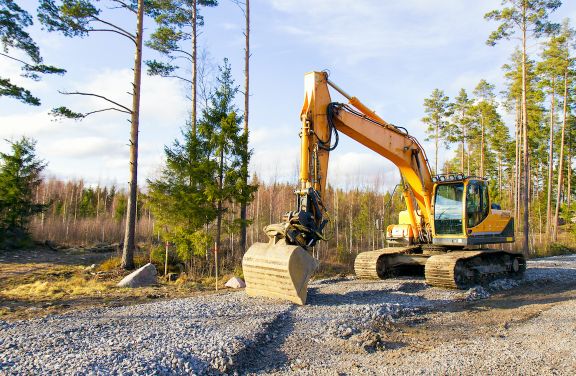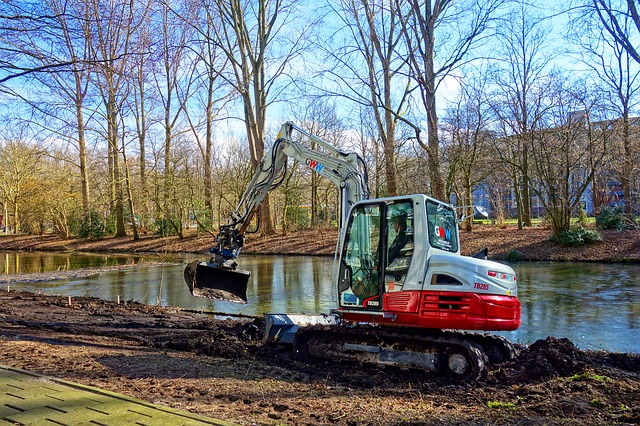
The national average cost to remove a slab of concrete is $1,444. You can expect to pay anywhere from $2 to $6 per square foot. However, the price can vary depending on your location, the slab's thickness, the type of reinforcement it contains and whether you're going to hire a contractor or perform the task yourself.
Preparing the ground is key to waterproofing it. Preparing the foundation is essential. This includes removing all debris and dirt. Additionally, it is essential to plan your waterproofing strategy well in advance.
First, determine how many inches of snow your property gets in winter. The snowfall will determine the equipment you will need. Snowplows are a great option for large commercial areas. It can be difficult to remove large quantities of snow and/orice using just a shovel.
Depending on the size of the project, it may be necessary to hire an excavating contractor to help with the demolition process. Demolition is a complex process that require heavy equipment, permits, and safety measures.
On the other hand, if you're working on a larger project, you'll need more equipment. For instance, if you're removing a concrete driveway, you'll want a tow-behind vehicle that can handle the weight of the rubble.
Foundation waterproofing systems also include a protective board that protects the elastomeric coating. These systems can be applied with a trowel or hand application.
A waterproofing membrane is installed over the concrete footing and foundation wall. The membrane can be tied into a perimeter drain system to prevent water from escaping from the foundation.
To start, you need to mark your utilities. Contact your city's administrator to get the necessary permissions. If the area is already zoned for construction, the city will likely pay for an inspector.
You should also consider the type of soil on the site. This will affect the cost of your septic tank installation. If the soil is heavy, it can affect the absorption of wastewater. If the soil is soft, it can settle into void spaces. Bedding materials such as gravel, sand, and washed rock can help to fill in these spaces.
Demolition is typically the first step in a construction project. The demolition process includes the demolition of the existing structure, the disconnecting of current services, and the inspection for safety hazards. Before a demolition can begin, a permit must be secured from the local authority.

An excavation contractor can provide a range of services, such as digging trenches, grading and landscaping for construction projects. The scope of work varies from simple excavating to trenching for sewer lines and water lines, septic systems, and electrical lines.
Demolition companies should be able to provide safety measures and a detailed demolition plan. Demolition experts will be able to provide accurate timelines for the project.
A drainage ditch can be installed around your property. This will allow water to be discharged into an irrigation ditch or storm drain.
No matter if you have an apartment building, condo or office building, snow removal contractors might be necessary. Do your research on the types of services they offer and the equipment they will use before hiring them.
Concrete is the most difficult to remove once it's set. It's best to hire a professional to do the job properly. They'll use their experience and tools to dismantle the slab and haul it away. It may take several days depending upon the size of the project. It costs $2,600 to remove 200 square feet of slab.
French drains can help protect basement from flooding. The drain will last decades if installed properly. You should be aware of several things before you install the drain.
It is a common step in site preparation to remove undesirable trees, shrubs and other obstructions. This clears the land and allows workers and materials free movement.
There are many products on the market to help you waterproof your home. You can choose from a variety of membranes, such as bentonite, polyurethane, and HDPE sheets. Some manufacturers recommend using a combination of products.
During the construction phase of a new home, site preparation is one of the most important things an excavating contractor can install. It involves a number of steps that help optimize your construction project. Besides helping to make your life easier, proper preparation can also help to ensure your new home's durability.
These utilities include water lines, sewers, and electrical systems. This is important because they can cause harm to the property's occupants and the environment.
Excavating is dangerous. To protect workers and others, proper engineering is essential. A skilled contractor can prevent soil compaction and help to avoid landslides. Waterproofing your foundation is essential for any home construction project, new or old. Water can seep into concrete cracks and cause structural damage. Waterproofing is also an option to prevent water from escaping your basement and flooding it.
You can also get help from an excavation company with demolition. This is a great option to prepare the property for a house or to construct a driveway. They can also fix drainage problems and improve the property's overall structure. Professional contractors can help keep your construction project on track and within budget.

To install a septic system, it is a good idea hire an experienced excavating contractor. A faulty septic system installation could result in expensive repairs and water contamination. If properly maintained, a septic can last many years.
Permits are often required for demolitions. These permits can be obtained from your local government. These permits can cost anywhere from a few hundred to several thousand dollars.
They ensure a smooth flow of water through the project site and help prevent flooding. Overall, excavation excavators help create beautiful projects that enhance the lives of people around the world.
A waterproofing membrane covers the concrete footing and foundation wall. To stop water escaping from the foundation, the membrane may be connected to a perimeter drain.
Mark your utilities to get started. You will need to contact the administrator of your city for permissions. If the area has been designated for construction, the city will most likely pay for an inspector.
A lot of utilities can be installed on a property by a commercial excavation contractor. This includes electric systems, water lines, and sewers. If these systems are not installed properly, they can end up causing harm to property occupants as well as the environment.
One of the most common steps in site preparation is to remove unwanted trees, shrubs, and other obstructions. This helps to clear the land, ensuring that materials and workers can move around freely.
Demolition can be done by an excavation company. This is an excellent way to prepare a home for a new build or to install a driveway. They can also improve the property's drainage system. The use of professional contractors will ensure that your construction project is on-budget and completed on time.
Although it might seem simple, concrete removal can be quite dangerous. To ensure safety for you and your concrete contractor, it is important to use the right safety equipment and procedures. You will want to ensure that you don't get caught in the machinery and that you have a clear view around the area you'll work.
A contractor who can help with demolition depends on the project's scale. Demolition involves complex processes that require permits, heavy equipment and safety measures.
Any unwanted objects should be removed during excavation. For instance, you need to get rid of stumps. Also, you might find large rocks or other stones that may block your installation route.

Excavating is a dangerous job. Proper engineering is required to ensure safety for workers and passersby. It is important to hire a competent contractor to prevent soil compaction, and prevent landslides from occurring.
Before you begin waterproofing your foundation, make sure that you know the flood zone in your area. If you have any water problems, you may be covered by your insurance company for cleanup costs.
A contractor will dismantle a building by removing all interior materials. This can include the use of explosives and wrecking balls. The debris is then taken away and everything is removed from the site.
An excavating contractor can create a beautiful terrain with the right tools. This is often more practical than a lawn on top of a hill. Flat lawns can be re-sloped in order to manage runoff.
